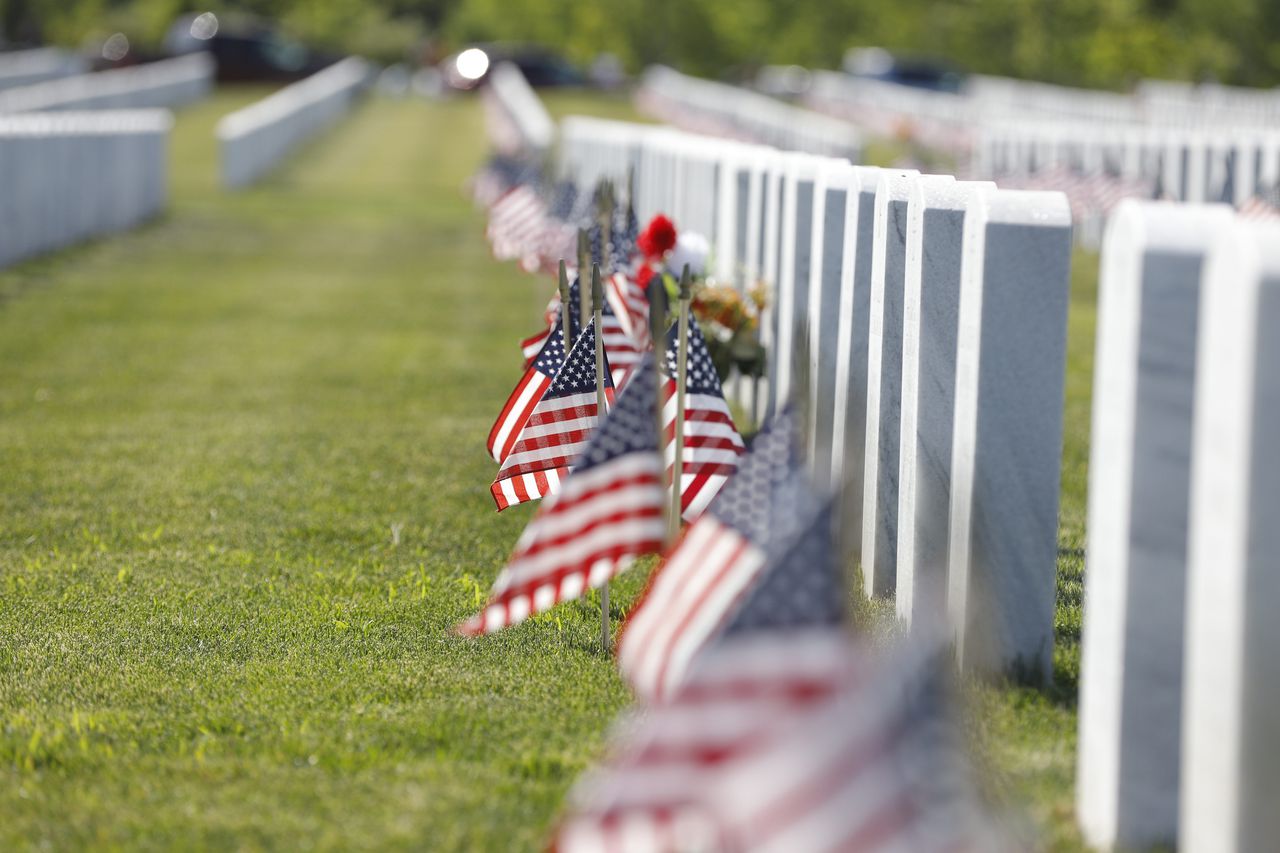A day of honor and a day to overcome differences
It was the late 1970s when I got a lesson about Memorial Day.
My husband worked in his family’s business. On the Monday morning following the last weekend in May, our telephone rang. It was my mother-in-law, a diminutive and powerful daughter of the South.
“Where is everybody?” she asked my husband impatiently. When he tried to tell her that it was Memorial Day, she cut him short.
“I know how to read a calendar,” she said. “We don’t take Yankee Memorial Day off. Call everyone and tell them to get to work.” The mid-19th-century division of our country — surely the worst thing we’ve suffered as a nation — was alive and well on that 1979 day in Foley, Alabama.
Memorial Day is not usually thought of as a holiday that celebrates our nation’s ability to overcome differences and come together. It should be.
The holiday that we’re celebrating this weekend began as an informal affair, when flowers were placed on the graves of Northern soldiers who died during the Civil War. From about 1867 on, the holiday evolved into a series of speeches and parades, with the aging Union veterans of the “Grand Army of the Republic” leading the way.
That holiday was quite different in the South. Confederate Memorial Day is still a holiday in some Southern states, including Alabama. For most of us, it’s a day when the local courthouse is closed and we don’t know why. Unlike Robert E. Lee Day, which is celebrated on the same day as Martin Luther King Jr. Day (irony of ironies,) there is no associated federal holiday on Confederate Memorial Day.
But what about this business of overcoming differences?
With these kinds of holidays, it started about 80 years ago.
During the Civil War, Vicksburg, Miss., was the key to the domination of the Mississippi River. Vicksburg fell to the North on July 4, 1863 — and the people in that city did not celebrate the Fourth of July for the next 81 years.
By then — July of 1944 — many sons of the South were fighting their way across France in World War II. Vicksburg’s city fathers decided it was time to put aside the past and honor those people who served under the same Stars and Stripes that had defeated their ancestors in 1863.
A unifying fact: My husband’s great-grandfather, Richard Henry Coleman, was a member of the Confederate Army and was captured by the federals at Vicksburg. My father, Edward James Barrett, a native of Louisiana, parachuted into France on D-Day.
In the face of these two men’s willingness to serve, who are we to quibble over holidays — or much else, for that matter?
Richard Henry Coleman was a 28-year-old infantry corporal when he was taken prisoner. He survived the war and died when he was 71 years old. Edward James Barrett was a captain in the 101st Airborne. He survived the war, a decorated veteran who carried the physical and emotional scars of his service to his death as a 58-year-old.
In terms of time and circumstance, these two were worlds apart. In terms of willingness to go to war, they were — and are — the same.
We are fundamentally confused these days about what Decoration Day, Memorial Day, Confederate Memorial Day and all the other similar holidays are about. We tend to co-opt these holidays to bolster or create a false story to support one political view or another.
If you say “patriot” today, you mean a hard-core right winger who is convinced he must have an assault rifle in the closet and military rations in the pantry. The word “Confederate” brings visions of the horror of beating slaves and the terror of lynching to the minds of many.
Those reactions are sad, disrespectful and foolish.
Richard Coleman went to war because Northern soldiers were in his state. He didn’t own slaves, much less beat them. He was called and he served. Ed Barrett was certainly a patriot. As a man who survived real, up-close combat, he would be either horrified or amused at the thought of a suburban “patriot” armed to the teeth, with military rations in the closet.
The real reason for the Memorial Day holiday is to honor men and women who died while serving in the U.S. military, although it has evolved to also honor all the men and women, living and dead, who were called and who served. They need not have endured the shelling of Vicksburg or assaulting the Wehrmacht. We honor those who were not combat soldiers as well.
They all offered themselves up.
No matter the political persuasion, race, ethnicity, gender or station in life, they gave of themselves. They served.
Certainly, the small proportion of service members who actually went into combat didn’t know what they were getting into. They never do. In actual combat, they fought for one another. But the nature of a person’s service isn’t the point. It is their willingness to serve, and that’s a noble thing.
They did it because they felt they had to. But the sacrifice these men and women made in serving is something done for you and me. They served to benefit all of us.
As a nation, we seem to be all too ready to throw away the constitutional system that has allowed us to weather things as terrible as a Civil War. The service of all military members is about protecting the United States from all enemies, foreign or domestic. Their service is, and was, to protect and defend us.
That can and should unify us. Anything less is disrespectful to them, the things they offered to do, the things they did, and the blood so many of them shed.
Frances Coleman is a former editorial page editor of the Mobile Press-Register. Email her at [email protected] and “like” her on Facebook at www.facebook.com/prfrances.
